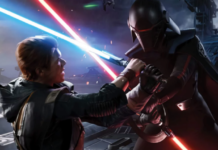Between the Star Wars Battlefront 2 loot box controversy, the subsequent purchasable loot boxes, and the following questions of whether loot boxes are gambling, there's been plenty of drama going on for Battlefront 2.
In an interview with Games Industry EA's CFO Blake Jorgensen detailed that EA decided on their loot box practice as a way to appease two player types, the ones with lots of time and the ones with little time and more money.
In addition to this, Jorgensen explained why the microtransactions in Battlefront 2 were not cosmetic and how they are planning for the future.
"We pulled off on the MTX, because the real issue the consumer had was they felt it was a pay-to-win mechanic. The reality is there are different types of players in games. Some people have more time than money, and some people have more money than time. You want to always balance those two."
One of the reasons why EA and DICE didn't pursue cosmetic microtransactions for the game was to protect the franchise's canon, according to Jorgensen.
"The one thing we're very focused on and they're extremely focused on is not violating the canon of Star Wars. It's an amazing brand that's been built over many, many years. So if you did a bunch of cosmetic things, you might start to violate the canon. Darth Vader in white probably doesn't make sense, versus in black. Not to mention you probably don't want Darth Vader in pink. No offense to pink, but I don't think that's right in the canon."
As for microtransactions in EA properties altogether, Jorgensen detailed that EA won't be pulling back on their current strategy. The game creator and publisher will continue pursuing the games as a service model, where they update the game with new content and include microtransactions. In regards to microtransactions, Jorgensen believes that EA still needs to figure out how they will be implementing them.
"We're not giving up on the notion of MTX. We're learning and listening to the community in terms of how best to roll that out in the future, and there's more to come as we learn more. But I would say we're certainly not changing our strategy. We think the strategy of deeply engaging games, keeping the community together, and allowing people to play those games with new content coming via events over time is critical to the future of our business. We feel like we've nailed that in the sports games, and we'll continue to try and find the best model that works in the non-sports games."
All in all, as long as EA is "making some mistakes along the way and learning from them" things are going well. It's when they stop learning and making mistakes that gamers should be concerned (according to Jorgensen).







